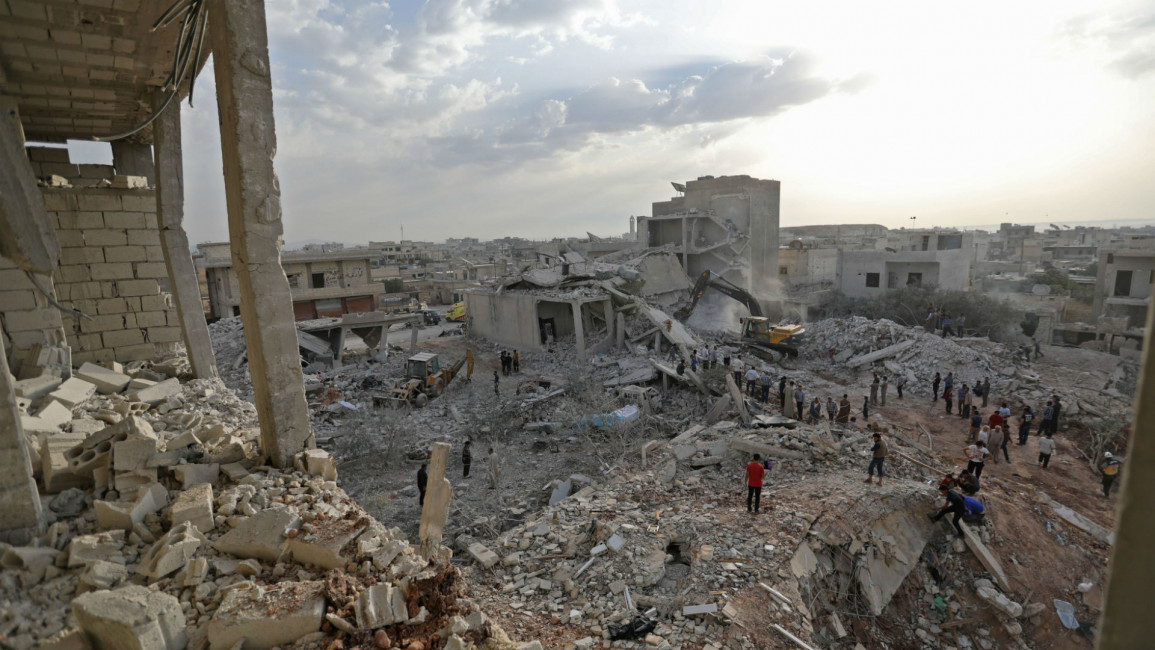Regime fire kills pregnant woman, daughter in Syria's Idlib: monitor
The two were killed when airstrikes struck near the city of Jisr al-Shughur, the the Britain-based Syrian Observatory for Human Rights said, reporting similar artillery fire in other rebel-held areas.
President Bashar al-Assad's forces have been amassing along Idlib's borders for weeks and shelling rebel-held territory on a daily basis, according to the Britain-based Syrian Observatory for Human Rights.
Experts say Jisr al-Shughur could be a key target if the government and its Russian ally were to launch an offensive on the region.
Idlib is adjacent to Latakia province, the coastal heartland of Assad's Alawite minority and home to the Russian military airport of Hmeimim.
In recent days, Damascus and Moscow have stepped up warnings of an imminent assault on the province, which shares a border with Turkey and is dominated by Hayat Tahrir al-Sham, a jihadist alliance led by the former branch of al-Qaeda in Syria.
Turkish troops are also stationed in Idlib and rebel backer Ankara fears an assault on the province may spark a new influx of refugees.
On Saturday, the UN's children's agency warned the offensive on the last big rebel enclave Idlib puts one million children at risk.
Some children have been displaced at least seven times already, Manuel Fontaine, UNICEF's director of emergency programmes, told Reuters.
"It's more than one million kids... When you hear the kind of military rhetoric about an offensive and all that, I think it's important to remember that it's not just against a group of armed men," Fontaine told Reuters in Geneva.
"It's actually a very large proportion of women and children who have no stake in it, and elderly men and others," he said, after holding talks in Damascus this week with deputy foreign minister Faisal Mekdad.
Almost 3 million people live in the province, half of them arriving from other areas of Syria captured by regime forces which have forced opposition supporters to flee.
The agency has drawn up contingency plans including providing clean water and nutritional supplies to some of the estimated 450,000 to 700,000 people who could flee an attack.
"There's some children who have been displaced seven times already, going from one place to the other," Fontaine added. "It means that their coping mechanisms, their resilience is very drained at the moment so they are particularly vulnerable. That's a major concern obviously."
More than 350,000 people have been killed and millions displaced since Syria's war started in 2011 with the brutal repression of anti-government protests.


![President Pezeshkian has denounced Israel's attacks on Lebanon [Getty]](/sites/default/files/styles/image_684x385/public/2173482924.jpeg?h=a5f2f23a&itok=q3evVtko)



 Follow the Middle East's top stories in English at The New Arab on Google News
Follow the Middle East's top stories in English at The New Arab on Google News


